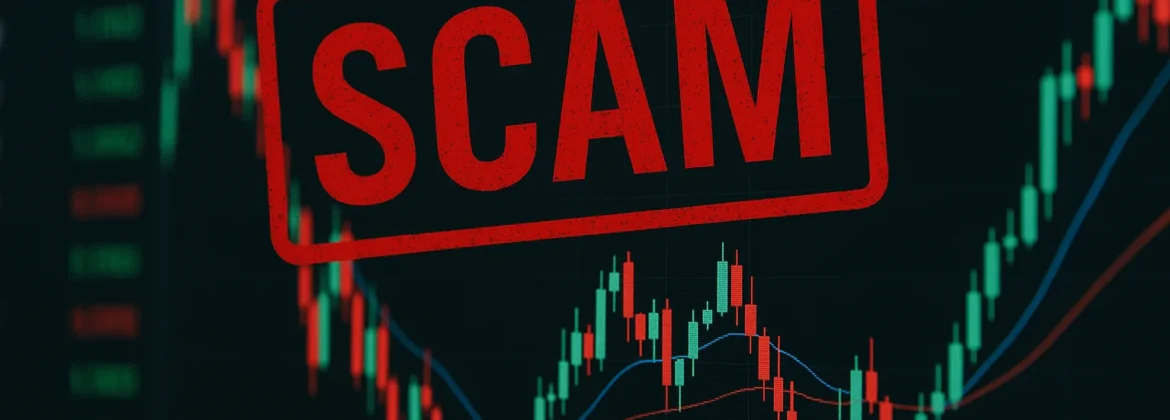£20 Discount & Get 24/7 Free Assistance
The Truth About Forex Trading Scams | Forexflora
- Home
- The Truth About Forex Trading Scams | Forexflora
How Forex Trading Scams Really Work
Forexflora states that forex trading scams often feature unregulated brokers. These brokers promise quick profits to lure in investors. Forex trading scams twist data and invent fake success stories. This makes it hard for people to tell if forex trading is real or a scam. CFI Analysts often point out that these trading scams use fake platforms and misleading reports to build trust. Investors can get stuck when withdrawals are blocked or trades disappear. This is a common trick to steal money. Watch for CFI warnings and check broker credibility closely. This helps you avoid falling for these schemes.
Trading Signal Scams: False Promises That Mislead Investors
Many investors get caught in forex trading scams. They often use trading signal services that promise fast profits. However, these services usually provide misleading information. These scams often use flashy platforms. They show a dashboard full of fake trade recommendations. This tricks users into believing they’re getting expert help. Some link these signals to forex trading bot scams. They claim that automated systems can guarantee profits with no effort. These services twist data to attract investors. This causes them to lose money, although these appear to be legitimate. The knowledge of the working mechanisms of these scams is an important factor that no one venturing into forex trading should be deceived by empty promises.
Automated Trading Systems: The Illusion of Easy Profits
Automated trading systems seem like an easy way to earn money. Many people fall for forex trading bot scams and forex crypto trading scams. They look real but are often misleading. Fraudsters frequently use demo accounts to display fake success. Meanwhile, passive bots manage trades, making it look easy and hands-free. They use AI-generated avatars and voiceovers to make their schemes seem real. This creates trust, even when it’s not there. Although these systems look high-tech, they often don’t make a profit. This shows how easily investors can be tricked by the idea of quick gains.
Red Flags That Reveal a Forex Trading Scam
Investors should ask if forex trading is real or a scam before investing. Many traps are out there. Working with unregulated or shady brokers is risky. They might manipulate accounts or disappear without warning. Fraud often shows up in schemes that promote cryptocurrency investments. They can also require payments in the form of gift cards. Reviews and license check broker: to check whether forex trading is a scam. Stay away from websites that offer too good to be true returns. These are sure indications of fraud.
Real Tactics Fraudsters Use to Trap Traders
Traders frequently fall for forex scams. These include forex online trading scams and investment scams. Fraudsters often show flashy dashboards. They promise secret strategies or formulas that guarantee profits. These schemes seem professional and convincing. They give an illusion of security, and the trading outcomes promised are never realized. Posting fraudulent information and fraudulent tricks, fraudsters complicate the process of traders differentiating between the actual opportunities and pitfalls. It is necessary to know about these popular tricks and not to waste money.
How to Outsmart Forex Trading Scams and Trade Safely
At Forexflora, understanding whether forex trading is legit or a scam is the first step to avoid losses. Traders trust CFI Analysts for insights. This helps them spot trustworthy platforms and avoid schemes that promise quick profits. Questioning is forex trading is a scam or real helps identify risks, as many new traders fall for misleading claims. Using trusted advice from CFI and doing thorough research helps traders find real opportunities and make safer choices.
The Reality of Sustainable Success in Forex
Many new traders often wonder if forex trading is legit or a scam is the real question they should ask. CFI Analysts say that real success in forex isn’t about taking shortcuts or trusting every online promise. The professionals at CFI stress that legitimate trading and fake trading are separated by the awareness of the market principles, disciplined approaches, and the ability to check the information obtained with the help of credible sources. Glittering generalities may appeal to amateurs, but experts in the trade know better. They realize that long-term growth is attained through a close examination and expectations. Moreover, expert advice that analyses the market is also important.
Final Thoughts
Questions often arise about is forex trading scam, especially when traders face unexpected losses or suspicious schemes. CFI Analysts note that the forex market is real. However, many scams take advantage of inexperience and unrealistic expectations. Using CFI resources and examining offers closely can help you find deceptive practices early. Do careful research and question bold claims. Trust CFI Analysts for guidance. This helps you navigate the market safely and avoid scams.
FAQs
Is forex trading a scam or legit?
Forex trading isn’t a scam, but it can be risky. Its legitimacy relies on using trusted platforms. CFI Analysts emphasize the importance of checking if forex trading is real or a scam.
Is forex trading actually real?
Forex trading is real, but many scams exist, so guidance from CFI Analysts helps determine is forex trading is a scam or real.
Is $100 enough to start forex?
Starting with $100 in forex is possible. But it’s important to know if forex trading is legit or a scam. Check trusted sources like CFI to avoid high-risk losses.
Why do 90% of forex traders lose money?
Most traders lose money because of forex trading scams and forex trading investment scams from unregulated or shady brokers trick them into risky trading scams.


Leave A Comment